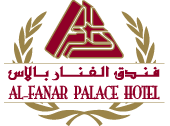Geographical Information
The Hashemite Kingdom of Jordan is a relatively small country situated at the crossroads of the Middle East. Comprising some 92,300 square kilometers (57,354 squares miles), it is bordered on the north by Syria at the east by Iraq, and by Saudi Arabia on the East and South. Also, to the south one finds the Gulf of Aqaba and the Red Sea, while Israel and Palestine lie to the west. Jordans diverse terrain and landscape belay its actual size, demonstrating a variety usually found only in large countries.
Population
5.16 million
Currency
The local currency is the Jordanian Dinar, symbol JD. The Dinar is divided into 100 Piasters (pronounced "pee-aster") or 1000 fils ("fills"). There are 5, 10, 20 & 50 JD notes commonly used, and you will usually see prices written as 4.750, that is 4 JD and 750 fils. Coins come in the following denominations: 2.5, 5, 10, 25 and 50 piasters; and in 10 fils. It is useful to carry some coins and low denominations since Jordanians rarely carry enough change for larger denominations.
Currency can be exchanged at major banks and at most hotels. Street moneychangers are best avoided. The Jordanian Central Bank sets exchange rates daily.
Time
From October through March, Jordan is two hours ahead of Greenwich Mean Time; the rest of the year, it is three hours ahead of GMT. Jordan is seven hours ahead of US Eastern Time.
Business Hours
Most Jordanians work a five and half-day week with Thursday afternoon and all day Friday off, but business and shopping hours are flexible. Some establishments are open from 09:30 - 13:30 and again from 15:30 - 18:00; others may be open straight through the day, from 08:00 - 20:00.
Government offices are open from 08:00 - 15:00. All businesses and most shops, other than those in the souqs, are closed on Fridays. Banks are open from 08:00 - 15:30. Having Friday and Saturday off.Airlines, travel agencies and many shops close for the afternoon, although department stores and supermarkets remain open. Some businesses and shops are closed for part of the day on Sunday. Shopping hours are flexible. Some shops are open from 9:30-13:30 and 15:30-18:00. Others may be open long hours, from 8:00-20:00. Shorter hours prevail during the Holy Month of Ramadan.
Climate
Jordan is blessed with a Mediterranean climate for pleasurable year-round travel. Amman is sunny and cloudless from May to October, with average temperatures around 23C (73F). Springtime brings optimal weather, lush with greenery, and autumn equally mild and pleasant. July and August are hot and dry but not oppressive. Because of the capital citys elevation, evenings are cool. Aqaba and the Jordan Valley are ideal winter resorts, with temperature averaging 16-22C (61-72F) between November and April. There is very little rain in the Aqaba area and in the desert.
Clothing
Even in summer, evenings can be cool, so a sweater or shawl is advisable. Winters can be extremely cold, especially in Amman and the east; you will need a raincoat. Walking shoes are advisable since Petra and most of the archeological sites are unpaved and sandy.
Language
A visit to Jordan would provide an ideal opportunity to brush up on your Arabic! Arabic has been one of the worlds dominant languages for the last 14 centuries.
Over 200 million people in over twenty countries speak this rich and enduring language. In addition to that of Jordan, Arabic is the official language of Saudi Arabia, Kuwait, Oman, United Arab Emirates, Qatar, Iraq, Syria, Lebanon, Egypt, Sudan, Libya, Tunisia, Algeria and Morocco. It is the language of the Quran, the holy book of Islam and, as such, Muslim followers study it all over the world. Therefore, while spoken Arabic consists of various dialects, the written language as preserved through the holy Quran remains constant throughout the years. Speakers of different Arabic dialects may experience problems understanding one another; however they all understand its classical form as exemplified in its textual representation. A Semitic language, Arabic is written from right to left. Arabic numbers are easy to read - indeed, Western numerals are derived from the Arabic system. Unlike the words, Arabic numbers read from left to right.
Religion
The state religion is Islam, as indicated in the Constitution. The majority of the population (92%) is Sunni Muslim. Those include other non-Arab minorities such as the Circassians and the Chechen who, towards the end of the last century, fled their homeland in Caucasia. The rest of Jordans population are Arab Christians and Armenians of different denominations whose freedom of worship, opinion and association are guaranteed by the constitution.
Public Holidays
January 1 New Year
Shawal 1st for Eid Al Fitr
Thu'l-Hijjh - 10th Eid Al Adha
Muharram 1st Hijra New Year
May 1 Labor Day
May 25 Independence Day
12 Rabi' 1 Prophet's Birthday
Rajab 17th Al-Isra'a wal Me'raj
December 25 Christmas
Electricity
220 V
Water
It is advised to drink bottled mineral water which is generally served in hotels.
Medical Care
Medical care in Jordan is of an international standard and one of the best in the Middle East.
 Make a Reservation
Make a Reservation